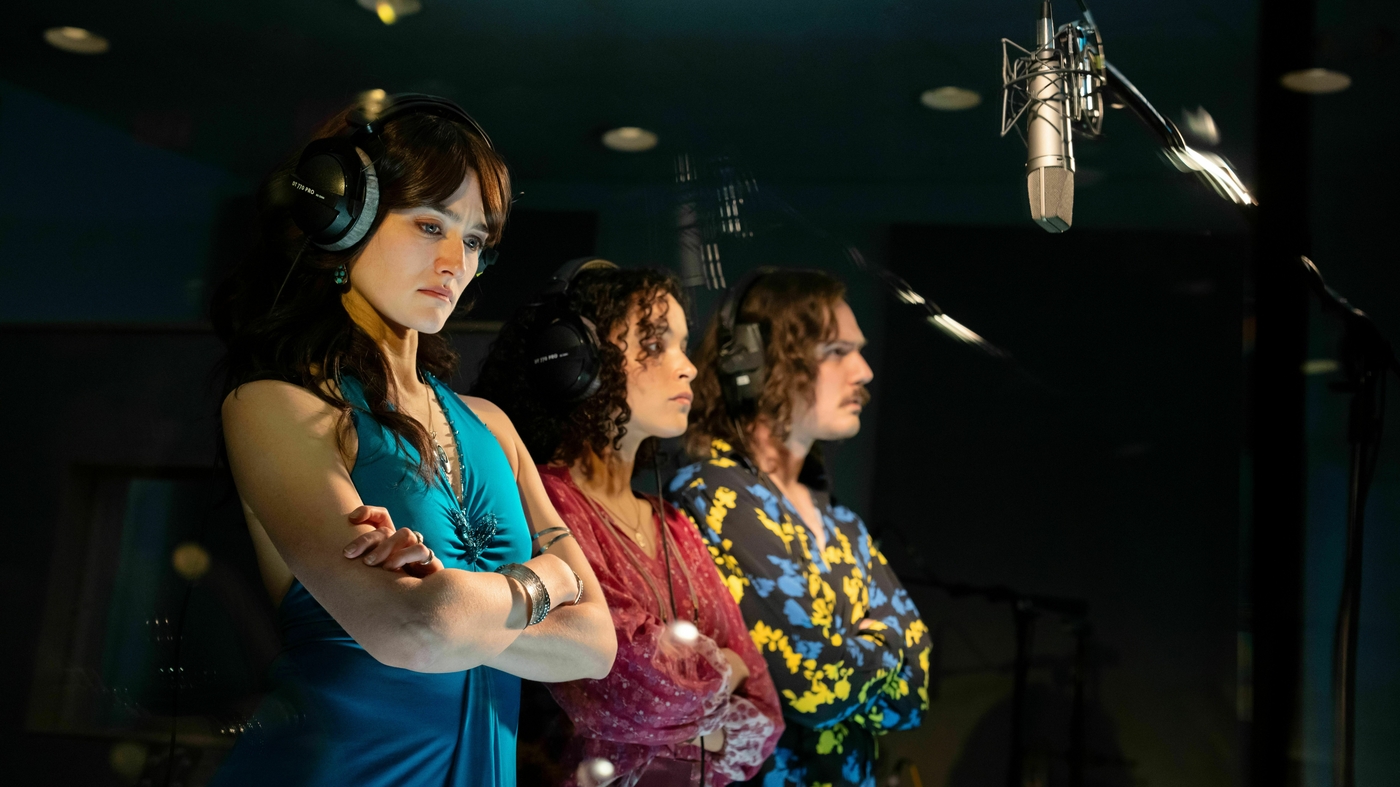
10 Spanish Female Producers to Track This Year
These women are backing buzzed-about Spanish projects, many of them co-productions.
Leire Apellaniz

Image Credit: Eneko Muruzabal With noteworthy titles — Goya-nominated “Advantages of Travelling by Train,” Locarno standout “The Sacred Spirit” — proud Basque Country native Apellaniz has grown step by step. She is following “Samsara,” buzzed about at Berlin, with upcoming Henry Golding starrer “Daniela Forever,” directed by Nacho Vigalondo (“Colossal”). She’s also committed to mentoring perse voices, particularly female. “It’s not just about working with female directors but pushing opportunities for women across all departments.”
Paola Botrán

Image Credit: Sideral Daniel Mayrit Botrán has built on her international sales experience at Latido Films, representing Netflix hit “The Platform” and “Killing Jesus” while shifting into producing. “In international co-productions, each territory has its own cultural and technical characteristics. This is the most enriching aspect on a personal level,” she says. A key part of Sideral, a new production-distribution-sales label, Botrán has raced out the block, exec producing “The Fantastic Golem Affairs” and Pablo Maqueda’s “Girl, Unknown.”
Valerie Delpierre

Image Credit: Franck Alix “It’s only this year that I’m co-producing internationally on a more than an occasional basis,” says Delpierre, a doyenne of the New Catalan Cinema, producer of “Summer 1993,” “Schoolgirls” and “La Maternal.” Also behind top Berlin winner “20,000 Species of Bees,” she has found, or is closing, partners overseas for features from Paula Ortiz (“Teresa”), Adrià García (“The Treasure of Barracuda”) and Borja Cobeaga (“Los Aitas”). “I like repeating with talent, and films connected to reality but with multiple layers,” she says.
Emilia Fort

Image Credit: Alba Yruela Following on “Alcarràs,” Fort, of Madrid-based Avalon, has worked on Álvaro Gago’s “Matria,” depicting the hard-fought life of a single mother living in the Galician countryside, and produced Ian de la Rosa’s “Iván & Hadoum,” a Berlinale Eurimages Award winner exploring trans identity set in Almería. Enthused by the breadth of regional talent, Fort aspires to continue boosting projects that move outside big city centers, producing narratives adding fresh textures to Spain’s booming cinematic repertoire.
Inés Nofuentes

Image Credit: Lucia Vassallo Nofuentes’ breakout film, “Ixcanul” (2015), by Jayro Bustamante, marked a turning point for her, winning a Berlin Silver Bear and becoming Guatemala’s first Oscar submission. Her follow-ups, “I Promise You Anarchy” and “Gunpowder Heart,” have continued to build on this success. “Don’t take anything for granted. Communicate, meet, discuss as much as you need before you take decisions regarding your professional partners,” are some of the lessons she’s learned over the years.
Alba Sotorra

Image Credit: Courtesy Image Few Spanish director-producers have plowed into international co-production with such passion and success as Barcelona’s Sotorra. Backing Roya Sadat’s “Sima’s Song,” which is in Spanish Screenings Goes to Cannes, and María Trenor’s “Rock Bottom,” playing in Annecy’s Animation Day, Sotorra has eight projects in development, six already set up as overseas co-productions. “Co-production is not only a financing strategy but makes a project more international and interesting from a creative POV,” she says.
Marisa Fernández Armenteros

Image Credit: Courtesy Image Launching Buenapinta Media in late 2020, Fernández Armenteros has hit the ground running, co-producing Maite Alberdi’s Oscar-nominated “The Mole Agent,” Alauda Ruiz de Azúa’s Goya winning “Lullaby” and Isabel Coixet’s “Un Amor.” She’s now developing titles by Ruiz de Azúa, Guillermo García López (in Cannes competition with “Aunque es de Noche”), Borja Cobeaga and Victor García León. “I love to combine new and [established] talent. It’s so enriching, affording multiple perspectives,” she says.
Marian Fernández Pascal

Image Credit: Daniel Escale Pascal produced “Amama,” one of the first Basque-language features to compete at San Sebastian, and her first TV series with company Txintxua Films, Koldo Almandoz’s “Mouths of Sand,” has paved the way for a move to more international co-productions. She acknowledges the complexity: “You have to coordinate two or more ways of producing to make sure all goes smoothly. It’s an enriching and complicated process.” She produced “Intimacy,” which topped Netflix’s global ranking for non-English TV shows in June.
Andrea Vázquez

Image Credit: Angel Santos Vázquez produced Oliver Laxe’s “Fire Will Come,” a 2019 Un Certain Regard jury prize winner. Vázquez, of Galicia’s Miramemira shingle, has proudly ushered Carla Subirana’s “Sica” while wrapping Jaione Camborda’s “The Rye Horn.” depicting “the mammalian capacity of women to engender life,” she says. With forthcoming titles by Laxe, Jaume Claret and a documentary by María Yáñez that allows her to pe into new territory, Vázquez likes films that pose a production challenge.
Maria Zamora

Image Credit: Meritxell Martz Zamora produced debuts from Beatriz Sanchís, Nely Reguera, Carla Simón and Clara Roquet, and Simón’s sophomore feature, “Alcarràs.” Zamora co-launched the Valencia-based Elástica Films in 2022, the shingle behind “Matria” and Cannes Directors’ Fortnight title “Creature.” She is now embarking on international series production and minority co-productions. “Spanish cinema is travelling more than ever, which has a lot to do with looking for partners abroad from projects’ initiation,” she says.





















































































